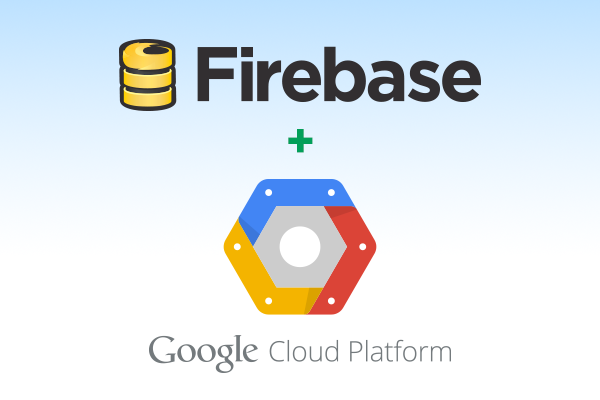 NEWS
NEWS
 NEWS
NEWS
 NEWS
NEWS
A big reason mobile ads blew past desktop ads last year to become the majority of digital advertising revenues was the rapid rise of app install ads. But as app overload sets in, developers are looking for a more effective way to keep people engaged in their apps.
Today at its I/O conference for software and app developers, Google Inc. is announcing a number of ways to make it easier for developers to market their apps to the people most likely not only to install a game or shopping app, but to play it or buy products regularly.
One linchpin to Google’s effort: Firebase, a company it bought back in October 2014. It’s a mobile backend as a service, the messy but critical package of data storage and real-time data synchronization software needed to manage an app’s customers and features.
Now, Google is making Firebase, which is offered as a free service, a much broader foundation for mobile app developers. The key addition it’s announcing today is a new Firebase Analytics service that it says will serve as the glue for all of Firebase’s storage, user “push” notifications, purchase tracking and other services. The analytics service will let developers measure not only installations, but purchases and a dozen other customer actions.
“This is really the next generation of Firebase,” said Firebase Analytics product manager Russ Ketchum, who added that the number of developers using the service has quadrupled since the acquisition, to 450,000. “You can think of this as Google’s mobile development platform now.”
One customer cited by Google, the online diet app SparkPeople, noted the advantage of linking its Google AdWords account to Firebase so it can see the lifetime value for its users gained from each ad campaign. Ad-driven actions by users can also be tracked across about 20 other ad networks, such as AdColony, InMobi and Vungle, where ads are run.
“Firebase becomes the engineer-to-engineer tool to build the apps and then have insight into how to go to market and acquire users,” said Brian Gracely, senior analyst at Wikibon, which is owned by the same parent company as SiliconANGLE.
Although Firebase has operated mostly under the radar next to flashier Google efforts such as machine learning and virtual reality, it’s a key component of the company’s effort to become a leader in cloud computing alongside Amazon.com Inc. and Microsoft Corp. Firebase enables developers to more quickly create apps and web applications, which Google can then offer to host and run on its Cloud Platform. Firebase could be the start of a series of stickier and more lucrative cloud services that go beyond basic infrastructure such as storage, Macquarie Securities wrote in a note to clients last month.
“Firebase is an amazing way for developers who don’t even know what a cloud is to develop cloud-based applications,” Greg DeMichillie, director of product management for Google’s cloud operation, said at a panel at I/O. And that means enterprise developers too, said Urs Holzle, a Google senior vice president who heads Google infrastructure: “Firebase will be an essential tool to build enterprise mobile apps.”
Still, Google may have some work ahead of it convincing developers to depend even more on its technologies. In February, Facebook shut down its mobile back-end as a service, Parse, leaving many developers scrambling. “The Parse trauma runs deep in the developer community and most people we talk to don’t want to commit their push notifications to big platforms,” said Antoine Guenard, cofounder and head of product at Batch.com, which provides notification technologies for apps.
Google also is announcing that it’s expanding its app ads, which it calls Universal App Campaigns, beyond Android devices to work on apps on Apple’s iOS mobile software that powers iPhones and iPads. As on Android, the ads can reach target users not only on apps but also on YouTube, search and the Google Display Network of some 2 million partner websites.
Even more important, the app campaign service is starting to offer more options to target the most valuable users based on in-app “conversions,” such as reaching level 10 in a game, booking a vacation in a travel app, or making a purchase in a shopping app. Moreover, it’s offering the option to pay for ads based on those kinds of conversions, not just based on installs.
Not least, Google is automating much of the work needed to figure out both whom the most valuable customers are and how much they’re worth so advertisers know the right amount to bid in ad auctions. “A lot of machine learning goes into all of this automation,” said Sissie Hsiao, product management director for mobile app ads. “We’re doing the heavy lifting with the ad creative and the targeting.”
Closely linking the more targeted advertising and the analytics potentially helps developers make more money, a key concern for Google because developers have had much more trouble extracting revenue from Android users than iOS users. Although that gap has been easing lately, Google still needs to close it further to keep developers happy.
Google’s spending on cloud data centers and “moonshots” such as Internet balloons and self-driving cars depressed earnings in the first quarter, but mobile ad revenues drove continued growth. Indeed, Google appears to have essentially caught up to longtime leader Facebook in app install ads.
It claims it has prompted 2 billion app installs as a result of its ads, the same number Facebook cited for its own ad-driven app installs at its F8 developer conference in April. And Google says the number of app ads has doubled from a year ago.
Photos from Google
THANK YOU